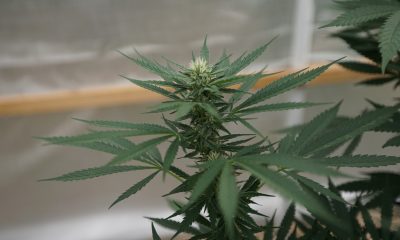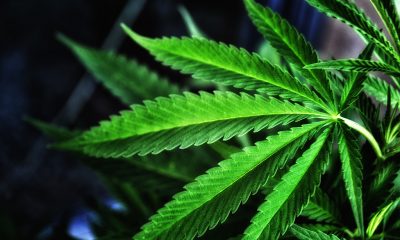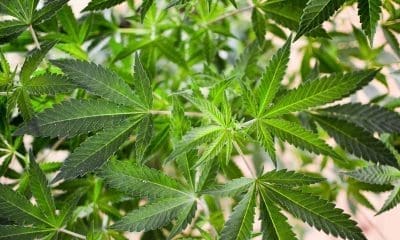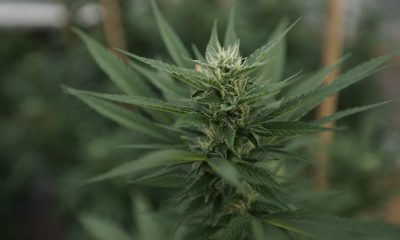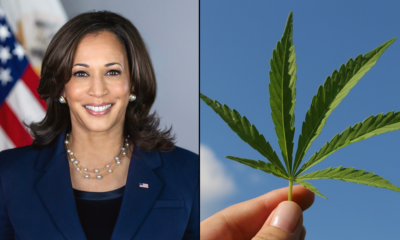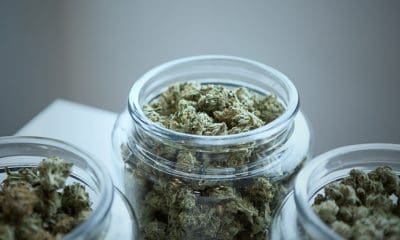Politics
Missouri Lawmakers Approve Bill To Promote Research On Psychedelics’ Medical Benefits
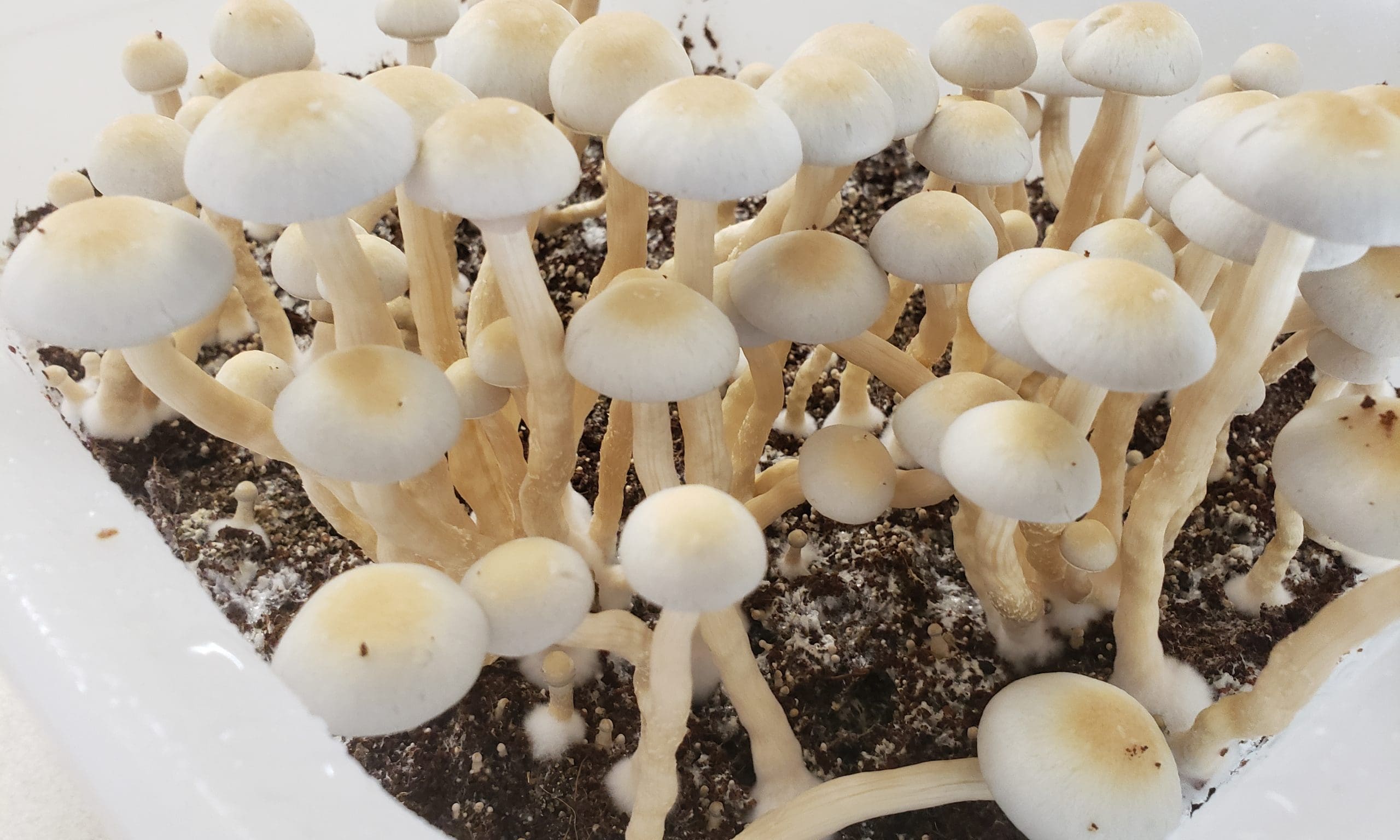
Missouri lawmakers have approved a GOP-led bill in committee to promote research into the therapeutic potential of certain psychedelics such as psilocybin, MDMA and ketamine.
The panel was initially scheduled to also take up an additional measure to provide legal protections to people using psilocybin for medical reasons, but that more far-reaching proposal was removed from consideration.
The House Veterans Committee approved HB 1154 from Rep. Dan Houx (R) in a 11-0 vote, just about a week after holding a hearing at which members took testimony on the two reform proposals.
“There’s been extensive research done on this. This has changed people’s lives with a very short treatment,” Houx said at last week’s hearing. “This is not an ongoing treatment. It’s very few sessions that cures a situation.”
Chairman Dave Griffith (R) said on Tuesday that he never expected he’d oversee the advancement of legislation on the issue.
“If you would have told me five years ago that I would be chairing a committee and hearing a bill…about psychedelics for veterans, I would have told you you’re crazy,” he said.
Here’s what Houx’s HB 1154 would accomplish:
The measure would would authorize a research partnership between the state Department of Health and Human Services and a U.S. Department of Veterans Affairs (VA) hospital to study the efficacy of psilocybin, MDMA and ketamine as alternative therapies.
Specifically, the researchers would need to explore the potential therapeutic benefits of the psychedelics on PTSD, severe depression, substance misuse disorder and people in end-of-life care.
The department would be required to carry out a clinical trial involving the substances and review the existing scientific literature on their medical potential.
Another bill that was on the committee’s agenda, HB 869 from Rep. Tony Lovasco (R), would have provided people who use psilocybin to treat certain conditions with an affirmative defense to avoid prosecution—but members ended up not considering it.
At Tuesday’s committee meeting, Houx said he is committed to working with Lovasco on a floor amendment to account for some of what he is trying to accomplish with his bill.
Lovasco’s measure “goes a little too far in my opinion, and is something that I probably would not be comfortable with,” Houx said, describing his own bill as “a little bit tighter.”
The provisions of the forthcoming floor amendment are still being worked out, but Eapen Thampy, a lobbyist with Silo Wellness, told Marijuana Moment after the committee meeting that key lawmakers are working to address concerns that any kind of legal psychedelic access for patients be facilitated through in-person diagnoses by credentialed healthcare professionals.
At last week’s hearing, Houx said he also wants to narrow the scope of his bill to cover psilocybin alone instead of also including MDMA and ketamine, but it’s not clear if that’s still his intent.
Another member filed an amendment during the Tuesday meeting to make it so that if someone dies from the effects of psilocybin during the course of a study, the research would immediately cease—but he ended up withdrawing it after other lawmakers expressed concerns about its structure. He said he would rework its provisions for consideration on the floor.
Here’s what Lovasco’s HB 869 would accomplish:
The bill would provide therapeutic access to psilocybin for people with serious mental health conditions such as post-traumatic stress disorder (PTSD), severe depression and terminal illness.
It doesn’t seek to amend state drug statute by legalizing psilocybin; rather, it would provide affirmative defenses against criminal prosecution for patients who possess up to four grams of the psychedelic, as well as doctors, caregivers and professionals who provide psilocybin services.
The state Department of Health and Senior Services (DHSS) would hold regulatory responsibility.
Any person could petition the department to add a qualifying condition for psilocybin, and regulators must approve the petition if the person establishes that there’s evidence that the natural medicine “benefits persons with the proposed condition in a manner equal to or greater than the benefit” of psilocybin for other conditions that are already approved.
Lovasco introduced an earlier version last session, but while it received a hearing in the House Health and Mental Health Policy Committee, it was not enacted and the sponsor revised it before filing this latest measure in January.
The previous version covered other psychedelics like mescaline or ibogaine. But the lawmaker told Marijuana Moment in January that it’s been winnowed down to psilocybin because “that’s what we have the most data and research on.”
During last week’s committee hearing on the current bill, Lovasco said that psilocybin is “a naturally occurring compound derived from mushrooms that has psychedelic effects that have been demonstrated to provide great relief for folks with many kinds of psychological conditions.”
“This product has been shown in extensive medical research to be effective and safe for a variety of conditions. There has been no indicated instances of overdoses or deaths directly linked to psilocybin,” he said. “In fact, the median lethal dose is actually twice that of caffeine. This is an extremely safe compound that can be used in a variety of circumstances, under the right conditions under medical supervision.”
He added that the psychedelic has received a breakthrough therapy designation from the federal Food and Drug Administration (FDA) and stands to uniquely benefit military veterans with serious mental health conditions.
“The only thing currently keeping people from accessing this treatment is the government. Plenty of people are going overseas or out of state currently to get the help that they need, because they’re not allowed to here in Missouri. That’s wrong,” he said. “House Bill 869 provides an opportunity for those folks to get the help that they need here today, rather than waiting.”
Last week, Griffith, the committee chairman, signaled his interest in considering the issue despite some members’ reservations, saying that “we need to really look at every option that is out there in order to try and find some solutions to some of the issues.”
—
Marijuana Moment is tracking hundreds of cannabis, psychedelics and drug policy bills in state legislatures and Congress this year. Patreon supporters pledging at least $25/month get access to our interactive maps, charts and hearing calendar so they don’t miss any developments.
![]()
Learn more about our marijuana bill tracker and become a supporter on Patreon to get access.
—
Psychedelics reform proposals have emerged in numerous state legislatures of divergent political compositions for the 2023 session, with many focusing on promoting research or providing some kind of regulated access to entheogenic substances for serious conditions.
In Hawaii, for example, a Senate committee approved a bill last week that would establish a state working group to examine the therapeutic effects of psilocybin. That legislation could receive floor action as early as this week. Meanwhile, lawmakers on the House side are also working to advance separate psychedelics measures.
Also last week, a New Mexico House committee passed a measure that would create a state body to study the possibility of launching a psilocybin therapy program for patients with certain mental health conditions who could benefit from using the psychedelic.
Washington State senators approved psilocybin reform legislation in committee last week that was previously gutted by a separate panel to remove legalization provisions.
Last month, Oklahoma lawmakers advanced a bill in committee to promote research into the therapeutic potential of psilocybin while providing legal protections against prosecution for people with eligible conditions who possess the psychedelic.
Those are just a few examples of the types of reforms that legislators across the country are considering this session. Psychedelics bills have been filed in over a dozen states so far in 2023.
An analysis published in an American Medical Association journal last year concluded that a majority of states will legalize psychedelics by 2037, based on statistical modeling of policy trends.




